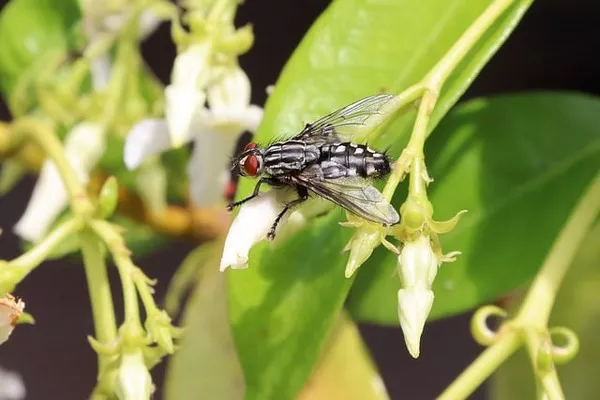Black flies, also known as gnats or midges, are tiny insects that can wreak havoc on your plants. These pesky pests feed on the sap of plants, causing damage to leaves and stems while also spreading diseases. If left unchecked, a black fly infestation can severely affect the health and aesthetics of your garden or indoor plants. In this article, we will explore several professional and effective strategies to get rid of black flies on your plants, ensuring their continued growth and vitality.
Identify the Black Fly Species
Before implementing any control measures, it’s crucial to identify the specific black fly species infesting your plants. Different species may have slightly different habits and vulnerabilities, so accurate identification is essential for effective control. While most methods work well against various black fly species, knowing the type can help you tailor your approach.
Cultural Practices
Healthy plants are less susceptible to black fly infestations. To promote plant health and discourage black flies, consider the following cultural practices:
a. Proper watering: Overwatering can create ideal breeding conditions for black flies. Ensure your plants receive adequate but not excessive moisture.
b. Adequate spacing: Crowded plants can provide hiding places for black flies. Maintain proper spacing to promote air circulation and reduce the risk of infestation.
c. Fertilization: Use balanced and appropriate fertilizers to provide essential nutrients to your plants. Healthy plants are more resistant to pests.
d. Pruning and sanitation: Regularly remove dead or damaged plant material to eliminate potential breeding sites and hiding places for black flies.
Neem Oil
Neem oil, derived from the neem tree, is a natural and effective insecticide for controlling black flies and other garden pests. Neem oil works by disrupting the feeding and reproductive processes of black flies. To use neem oil:
a. Dilute it according to the manufacturer’s instructions.
b. Apply the solution evenly to the affected plants, focusing on the undersides of leaves and areas where black flies are most active.
c. Reapply as needed, especially after rainfall or irrigation.
Insecticidal Soap
Insecticidal soap is another eco-friendly option for controlling black flies. It works by breaking down the waxy coating on the insects’ bodies, causing them to dehydrate and die. To use insecticidal soap:
a. Mix the soap with water according to the product label.
b. Spray the solution on the affected plants, ensuring thorough coverage.
c. Repeat the application every 7-10 days as needed.
Yellow Sticky Traps
Yellow sticky traps are a simple yet effective tool for monitoring and controlling black flies. These traps use bright yellow color to attract the flies, which then become stuck to the adhesive surface. To use yellow sticky traps:
a. Place the traps near your plants, ensuring they are at the same level as the foliage.
b. Regularly inspect the traps and replace them when they become covered with flies.
c. This method is more suitable for smaller infestations or as a preventive measure.
Beneficial Insects
Introducing beneficial insects to your garden can help control black flies naturally. Predatory insects like ladybugs, lacewings, and parasitic wasps feed on black flies and can help reduce their populations. You can attract these beneficial insects to your garden by planting nectar-rich flowers and providing suitable habitats.
Essential Oils
Certain essential oils, such as eucalyptus, peppermint, and lavender, have repellent properties that can deter black flies. To create a homemade repellent spray:
a. Mix a few drops of your chosen essential oil with water in a spray bottle.
b. Shake well and spray the solution on your plants, focusing on the affected areas.
c. Reapply as needed, especially after rain.
Chemical Insecticides
While chemical insecticides should be a last resort due to their potential harm to beneficial insects and the environment, they can be effective in extreme infestations. If using chemical insecticides, follow these guidelines:
a. Choose a product labeled for black fly control and follow the application instructions carefully.
b. Apply the insecticide during the early morning or late evening when bees and other pollinators are less active.
c. Avoid using chemical insecticides on edible plants and consider alternative methods for these crops.
Systemic Insecticides
Systemic insecticides are chemicals that are absorbed by the plant, making it toxic to black flies when they feed on the plant sap. These insecticides are applied to the soil or directly to the plant and can provide longer-lasting protection. However, use them with caution, as they can harm non-target insects and affect the entire plant.
Conclusion
Black flies can be a nuisance and a threat to the health of your plants, but with the right strategies,you can effectively control and eliminate them. It’s important to start with cultural practices that promote plant health and reduce the risk of infestations. If needed, consider natural remedies like neem oil, insecticidal soap, or beneficial insects. Chemical and systemic insecticides should be used sparingly and as a last resort, taking care to minimize their impact on the environment. By combining these professional methods, you can keep your plants black fly-free and thriving.


